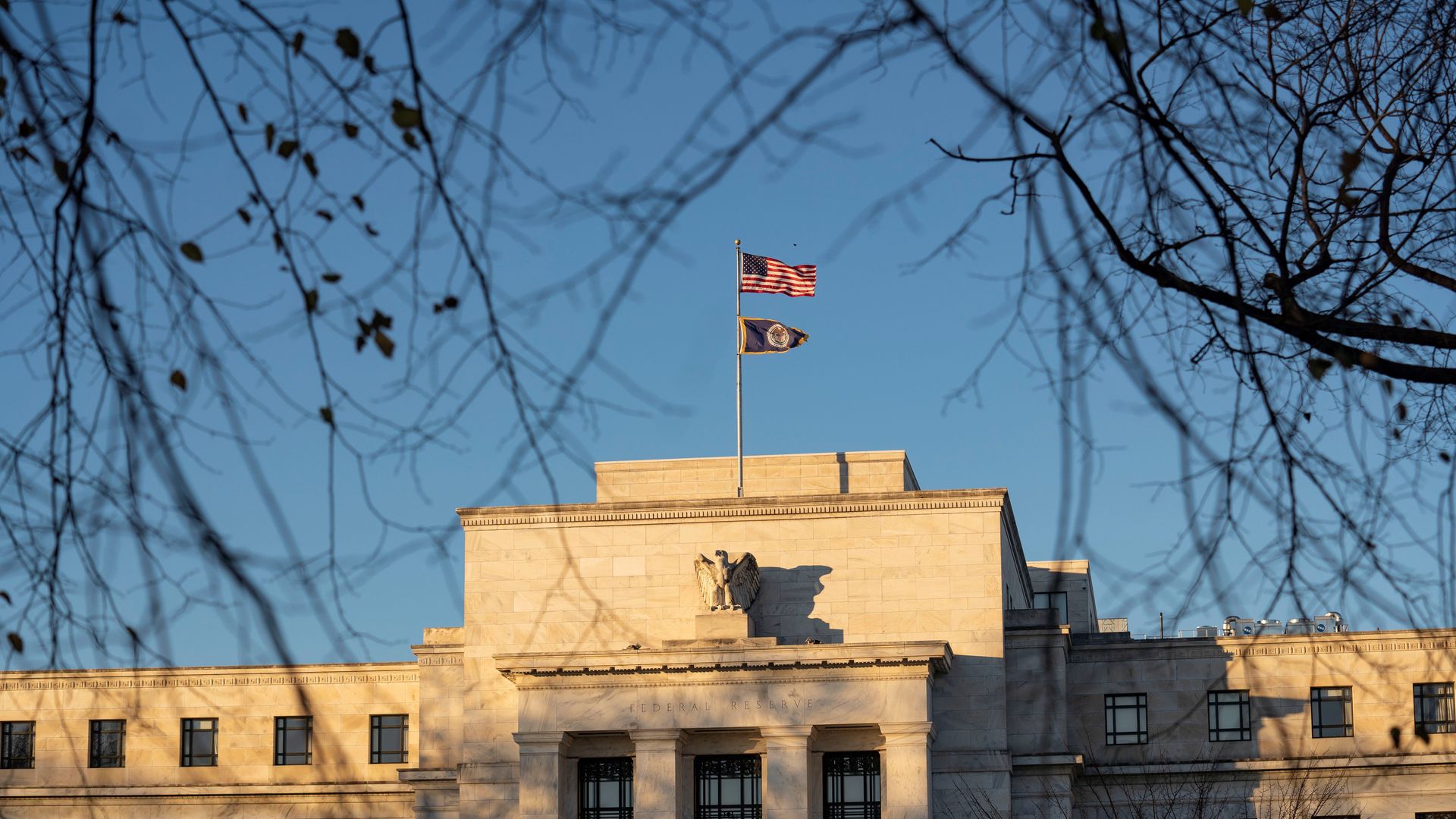Federal Reserve joins multinational climate group
Add Axios as your preferred source to
see more of our stories on Google.

The Federal Reserve Building. Photo by Liu Jie/Xinhua via Getty
The Federal Reserve said Tuesday that it has joined a three-year-old network of central banks working to manage climate-related risks to the financial system and help mobilize low-carbon investments.
Why it matters: The Fed board's unanimous vote to join the Network of Central Banks and Supervisors for Greening the Financial System shows how the Fed has increasingly been devoting attention to the topic.
The big picture: "As we develop our understanding of how best to assess the impact of climate change on the financial system, we look forward to continuing and deepening our discussions with our NGFS colleagues from around the world," Fed chairman Jerome Powell said in a statement.
Catch up fast: Reuters points out that the Fed had been the "only major global central bank" other than India's not to join.
- But the Fed had already been working with the coalition on an informal basis, and it's the latest step in a growing push by the Fed and its branches to become more active in the topic.
- Those efforts included a climate conference hosted last year by the Federal Reserve Bank of San Francisco.
- Powell, in a letter to lawmakers last year, noted severe weather can not only "devastate" local economies, including banks, but also "temporarily affect national economic output and employment."
- Last month, for the first time, the Fed included climate among the risks described in its formal Financial Stability Report.
What we're watching: How much the Fed may deepen its involvement on climate in other ways, especially as incoming President Joe Biden makes nominations to the board.
- There's already pressure from Democrats and environmentalists for a more aggressive posture.
- Democratic Sen. Brian Schatz of Hawaii said in a statement that the Fed should follow up its decision to join with "concrete steps" on managing climate risks.
- "That includes setting clear supervisory expectations for how banks should manage their climate risk exposure, and using tools like stress testing to hold them accountable," said Schatz, a member of the Senate Banking Committee.
